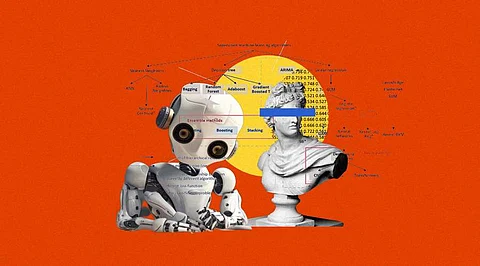
- Insights
- Cryptocurrencies
- Stocks
- White Papers
- Industry
- Geography


Machine learning has rapidly become an integral part of various industries, revolutionizing the way we analyze data, make predictions, and automate processes. For beginners diving into the world of ML, understanding the fundamental algorithms is crucial. These ML algorithms serve as the building blocks upon which more complex models are built. In this article, we'll explore the 10 best machine-learning algorithms that beginners should know about.
Linear regression is one of the simplest and most widely used algorithms in machine learning. It's used for predicting a continuous target variable based on one or more input features. It works by finding the best-fit line that minimizes the distance between the predicted and actual values.
Despite its name, logistic regression is used for binary classification tasks, where the outcome is either one of two classes. It estimates the probability that a given input point belongs to a particular class and is a fundamental algorithm in building classification models.
Decision trees are flexible algorithms that may be used for classification as well as regression. They create a tree-like structure to make decisions based on the input features, effectively dividing the data into subsets until a prediction is made.
A random forest is an ensemble method that combines multiple decision trees to improve the accuracy and robustness of predictions. It works by averaging the predictions of individual decision trees, reducing overfitting and increasing model performance.
SVM is a powerful algorithm used for both classification and regression tasks. It finds a hyperplane that best separates the data points of different classes while maximizing the margin between them.
KNN is a basic and straightforward technique for classification and regression applications. It assigns a data point to the class of its k-nearest neighbours based on a distance metric.
The Naive Bayes method is a probabilistic technique that is extensively used in text categorization and spam filtering. It's based on Bayes' theorem and assumes that features are conditionally independent, even though this assumption is often "naive" in real-world scenarios.
K-Means is an unsupervised learning algorithm used for clustering similar data points into groups. It iteratively assigns data points to clusters and updates the cluster centres to minimize the within-cluster variance.
PCA is a dimension reduction approach that is used to convert high-dimensional data into a lower-dimensional space while retaining the most critical information. It's often used to visualize data or improve the efficiency of other algorithms.
Neural networks are at the forefront of modern machine learning and deep learning. They are inspired by the structure of the human brain and consist of interconnected nodes (neurons) that process and transform data. While more complex, they are capable of solving intricate problems and have achieved remarkable success in image recognition, natural language processing, and more.
As a beginner, it's essential to grasp the concepts behind these algorithms before delving into more complex topics. While each algorithm has its strengths and weaknesses, understanding when and how to apply them is crucial. Moreover, hands-on practice is key to mastering these algorithms. Many machine learning libraries, such as scikit-learn in Python, provide easy-to-use implementations of these algorithms, allowing beginners to experiment and learn.
In conclusion, machine learning algorithms are the foundation of data-driven decision-making and automation. By familiarizing yourself with these 10 fundamental algorithms, you'll be better equipped to embark on a journey into the world of machine learning.
